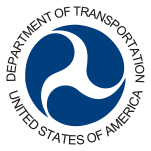Audit Reports
FRA's Requirements For High Speed Rail Stakeholder Agreements Mitigated Risk, But Delayed Some Projects' Benefits
Summary
On November 1, we issued a report on the Stakeholder Agreement Requirements for the Federal Railroad Administration’s (FRA) High-Speed Intercity Passenger Rail (HSIPR) grant program. While FRA has awarded and obligated over $10.1 billion in grant funds in the three years since it established HSIPR, our report focuses on the $8 billion in American Recovery and Reinvestment Act (ARRA) funds appropriated pursuant to ARRA in 2009 and awarded in January 2010. We conducted this review as part of our ongoing ARRA oversight work because HSIPR represents an unprecedented federal investment in the U.S. intercity passenger rail system. The objectives of our audit were to assess: (1) FRA's development of stakeholder agreement requirements for long-term corridor projects; and (2) the effects that the requirements' development had on short-term, ready-to-go projects. We found that while FRA took an important step to ensure that Stakeholder Service Outcome Agreements (SOA) for long-term corridor projects were in place before obligation, project stakeholders faced challenges and consequent delays in completing these SOAs in part because of unclear guidance from FRA on what they should contain. Further, FRA’s initial focus on long-term projects delayed (1) short-term project obligations and (2) the determination of requirements for short-term project agreements. The report recommended that FRA: (1) require that state grantees submit all required stakeholder agreements that address all terms specified by PRIIA and FRA’s Guidance prior to fund obligation; and (2) develop guidance on stakeholder agreements for short- and long-term projects that addresses the differences in the projects’ scopes to ensure that the intended benefits of each HSIPR project can be achieved. The Agency partially concurred with the first recommendation, and concurred with the second recommendation, indicating that it is committed to addressing the issue of further guidance if more HSIPR funding becomes available.
